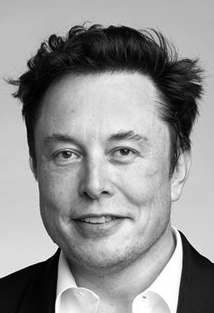
People often differ in their assessment of the intelligence of others, because they apply different measures to assess intelligence. If IQ is your measure of intelligence, then there is a great deal of evidence to suggest that Elon Musk has a high IQ. The following excerpt from the book Intelligence, IQ and Perception provides a brief insight into Elon’s capacity for invention, abstraction and problem solving:
Elon Musk was born and raised in South Africa. He emigrated to Canada at age 17 and began his post secondary education at Queen’s University in Ontario. After two years, he transferred to the University of Pennsylvania where he graduated with a degree in Economics from the Wharton School and a degree in physics from the College of Arts and Science. In 1995, he was accepted into the Ph.D. program at Stanford to study material science and physics, but dropped out after 2 days to pursue an entrepreneurial venture in the emerging internet.
By 1999, the web software company Zip2 that he had co-founded with his brother Kimbal, was purchased by Compaq for $340 million. This was the beginning of Elon’s creation or co-founding of a series of companies including, PayPal, SpaceX, Tesla, SolarCity, OpenAI, and Neuralink.
Musk is a high IQ person with a photographic memory. The success of his ventures is attributable to the vision that emanates from his problem solving ability and his capacity to abstract from what is to what might be.
In his book titled Elon Musk, biographer Walter Isaacson describes Elon’s proclivities and eccentricities, suggesting that a significant component of Musk’s success was attributable to an OCD (obsessive-compulsive) disorder. This obsession with perfection drove him to castigate employees who failed to perform up to expectation and this often resulted in resignations or firings.
Musk would not be rated high in EQ–defined (according to Mayer and Salovey) as, “the ability to monitor one’s own and others’ feelings and emotions, to discriminate among them, and to use this information to guide one’s thinking and actions.” In fact, Musk has been involved in several visceral exchanges on social media.
On June 23, 2018, a dozen members of a Thai soccer team, ages between 11 and 16, and their 25-year-old assistant coach entered the Tham Luang Nang Non cave after a football practice. A flash storm, bringing heavy rains flooded the cave, trapping the team inside. Answering requests for help, Elon Musk had his engineers design a kind of rescue pod that would enable the stranded young soccer players to exit the underwater cave without having to master the use of scuba equipment. Since time was of the essence, the 5‘6” long “mini-submarine” was quickly built, tested and shipped to Thailand. However, the rescuers deemed the rescue pod unsuitable because it lacked the flexibility needed to navigate the narrow rocky channels inside the cave.
When one of the divers in the rescue mission suggested that Musk’s efforts were merely a “public relations stunt”, Musk referred to him as a “pedo guy” (meaning a pedofile). Insults transmitted by social media flew back and forth and lawsuits were threatened. Owners of Tesla stock, alarmed by Musk’s volatile behavior, sold their shares resulting in a rapid market value decline of 4%. Pressure from major shareholders prompted Musk to apologize, and withdraw his comments. The Guardian reported:
Musk had pledged to be less combative on social media, saying earlier this week: “I have made the mistaken assumption – and I will attempt to be better at this – of thinking that because somebody is on Twitter and is attacking me that it is open season. That is my mistake. I will correct it.”
On December 5, 2019, the libel lawsuit against Musk was dismissed.
Those who define intelligence as EQ, or those who don’t like Musk’s political stripes, may be reluctant to acknowledge Musk’s high intelligence. However, they would be well advised to measure Elon Musk against the following definition of intelligence that has achieved wide consensus among members of the American Psychological Association (APA):
Intelligence is a very general mental capability that, among other things, involves the ability to reason, plan, solve problems, think abstractly, comprehend complex ideas, learn quickly, and learn from experience. It is not merely book-learning, a narrow academic skill, or test-taking smarts. Rather, it reflects a broader and deeper capability for comprehending our surroundings, “catching on,” “making sense” of things, or “figuring out” what to do.
Musk’s record speaks for itself.
